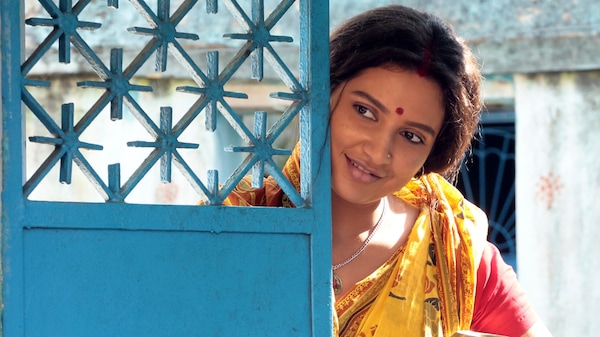Dharamajuddha review: Despite Ritwick, Parno and Subhashree’s valiant effort, the film fails to escape glaring lacuna in storytelling
Raj Chakraborty’s Dharmajuddha is a clumsy and pointless attempt to deal with one of the most pressing subjects in India: communal violence

Last Updated: 12.58 AM, Aug 12, 2022
Story: Dharmajuddha is about a night when violent communal riots rampage a town of common middle-class people. During the riot, Amma (Swatilekha Sengupta) gives shelter to a pregnant Munni (Subhashree Ganguly) and a radical duo Jabbar (Soham Chakraborty) and Raghav (Ritwick Chakraborty), despite constant protest from Shabnam (Parno Mittra) – another sheltered woman. It then becomes a sporadic collection of their backstories.
Review: More than a film, Dharmajuddha is a collage of idealist and humanist preachings. The film checks all the boxes of stereotypical tropes – reverse love jihad, sharing food from the same platter, the magnanimity of forgiveness and so on. At a time when a toxic cloud of communal disharmony envelops India, we probably need a more mature voice from the popular culture to heal the discord and bring peace. Films like Bombay, Parzania, Zakhm, Dev and many more have put forward some effort to counter and pacify the communal rage. There is a possibility that we will get to watch more such films in the future.
However, Dharmajuddha has failed to present a comprehensive story that can be taken seriously as a film, let alone its attempts to bring social harmony back from conflict. The film has two flashbacks in the first half – one comes from Munni and the other from Jabbar. The second half presents two more – Raghav’s and Shabnam’s. Despite different stories, their narration more or less shows how personal losses and threats have made them hate the other community.
The main problem of the film is its super simplification of narration. The cause and effect sets for each of the characters are far from real. The film also offers irrational benchmarks of humanity. For example, within five minutes of attacking Munni with a sickle, Shabnam saves her from raging Jabbar’s cleaver. The bloodthirsty Raghav and Jabbar take no time in being pally and taking bets over the Munni’s child’s gender. Like really? The idealistic amma is the epitome of humanity, who doesn’t let her losses affect her judgement.
However, in reality, the systematic build-up of communal tension in India is far from such trivial, personal loss tropes and stereotypes. It is much more ruthless and sinister than Dharmajuddho could make out.
The high points of the film are, however, Subhashree, Parno and Ritwick’s performances. While Ritwick keeps it low, Subhashree and Parno go high-pitched with their emotions and yet make their character real. Shabnam has her moments of smart snappy retorts and that is a delight to watch. Munni, on the other hand, is more on the side of a plain Jane. Her flashback with her husband (Saptarshi Moulick) is also very pleasingly shot and presented. Soham is occasionally good. On certain occasions, he goes overboard with emotion that looks jarring. Meanwhile, Swatilekha’s performance is affected by the mindless monotony of dialogues.
Verdict: A serious realistic topic demands commensurating treatment. Despite being an utmost important topic, Dharmajuddha fails to deliver that. Raj is known for his captivating storytelling. We have seen many riveting plots and their cinematic representation on screen. Billed as one of his most ambitious projects, Dharmajuddha however, fails to match his calibre.
Subscribe to our newsletter for top content, delivered fast.

